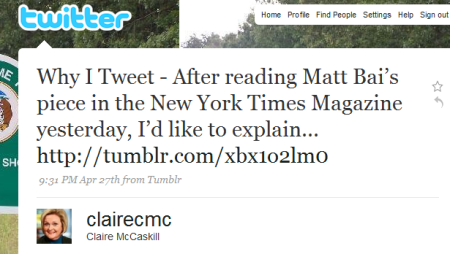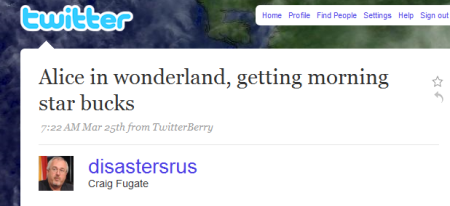Ask anyone what they think the previous occupation of a Congressman was, and they’ll probably say “lawyer.” Or career politician. They might picture someone in a stuffy suit, making lots of promises they don’t keep. And it’s true that many members of Congress have backgrounds in law or business, and often have great personal wealth or super-connected families at their disposal to give them a leg up in the campaign.
But Adriel Hampton is refreshing because he’s not any of those things. Adriel is currently running for Congress in the 10th district of California — and he’s one of our very own social media guys, among other things. He’s a pioneer and thought leader in the realm of government 2.0 and open government. He even made headlines for how he announced his Congressional campaign: via Twitter.
Last week I had the chance to interview Adriel about his bid for Congress — check out what he had to say about politics, government, social media, and transparency. This is a guy who truly believes in changing American politics and OPENING government to the people. He’s running for Congress to bring real change to Congress – I’d say that’s something to get excited about.
As far as social media, I’m a longtime journalist in addition to my current job as a municipal investigator. I began blogging in 2003, used blogs for environmental and development campaigns after I left newspapering in 2005, and I got really involved with the “2.0” tools in 2008 around the Barack Obama campaign (though in 2005 I did speak at the Webzine conference on blogging and journalism). I use social media as a two-way channel and I’m really excited to see mass communication moving away from broadcast and becoming more person-to-person. I’m very active with GovLoop, a network for gov employees, and was introduced to lots of collaborative tools for activism by Jon Pincus last fall during the anti-bank bailout fight. As you know, I’m very active on Twitter, which is a natural medium for me based on my communication style and career as a journalist. I founded Gov 2.0 Radio on BlogTalkRadio along with several friends from GovLoop, and, lastly, I help with official social media outreach for my employer, the San Francisco City Attorney’s Office.

 A few months back I started writing a post questioning whether members of Congress really need to be Tweeting. Especially if their Tweets are particularly snarky. That post, like about 75% of the posts I start writing, never saw the light of day because I never completed that idea.
A few months back I started writing a post questioning whether members of Congress really need to be Tweeting. Especially if their Tweets are particularly snarky. That post, like about 75% of the posts I start writing, never saw the light of day because I never completed that idea.

![Reblog this post [with Zemanta]](https://i0.wp.com/img.zemanta.com/reblog_e.png)



You must be logged in to post a comment.